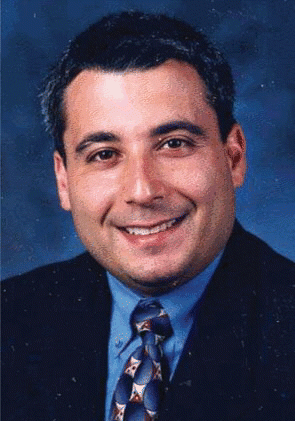 Some people come in to the clinic thinking they are Baha or CROS candidates, but what they consider to be their good ear actually has bad hearing. These patients may need a cochlear implant.
Some people come in to the clinic thinking they are Baha or CROS candidates, but what they consider to be their good ear actually has bad hearing. These patients may need a cochlear implant.Explore This Issue
January 2009-Sam J. Marzo, MD
Good surgical implantation can also help patients avoid infection, said Dr. Niparko. A lot of surgeons have learned to more adequately thin the skin surrounding the implant to help decrease the risk of infection, he said.
Additionally, some teenagers don’t like the aesthetics of Baha, said Dr. Murray. They have commented that the Baha abutment looks like Frankenstein, which can be viewed as an extreme reaction, but you have to understand where the patient is coming from, she said. The attachment is permanent and penetrates the skull.
What Patients Should Know
Patients who have deafness should know there are solutions and technologies available to help them hear, said Dr. Wazen.
All three options-CROS, transcranial CROS, and Baha-can be advantageous, added Dr. Kohan.
Physicians should provide patients with all the pros and cons of various hearing aids in as nonbiased a fashion as possible, said Dr. Murray.
Generally, patients should understand that even though CROS is the workhorse of hearing aids and doesn’t need surgery, the technology is outdated, said Dr. Kohan. Fewer patients are using CROS, and smaller numbers of audiologists know how to maintain it, he said.
The transcranial CROS hearing aid has replaced traditional CROS for people who don’t want surgery, added Dr. Kohan. And while Baha generally provides the best hearing of the three options, patients should understand the post behind the ear that holds the device in place can be difficult to maintain.
Patients need to understand that to use any of these options for unilateral hearing loss, they need to have good hearing in at least one ear, said Dr. Marzo. Some people come in to the clinic thinking they are Baha or CROS candidates, but what they consider to be their good ear actually has bad hearing, he explained. These patients may need a cochlear implant.
On the Horizon
Even as Baha and CROS may help patients with unilateral hearing loss, physicians and researchers hope technological improvements will provide patients with more treatment options.
Hearing aids implanted in the middle ear that could help with unilateral hearing loss are currently being studied in clinical trials, said Dr. Wazen.
Leave a Reply